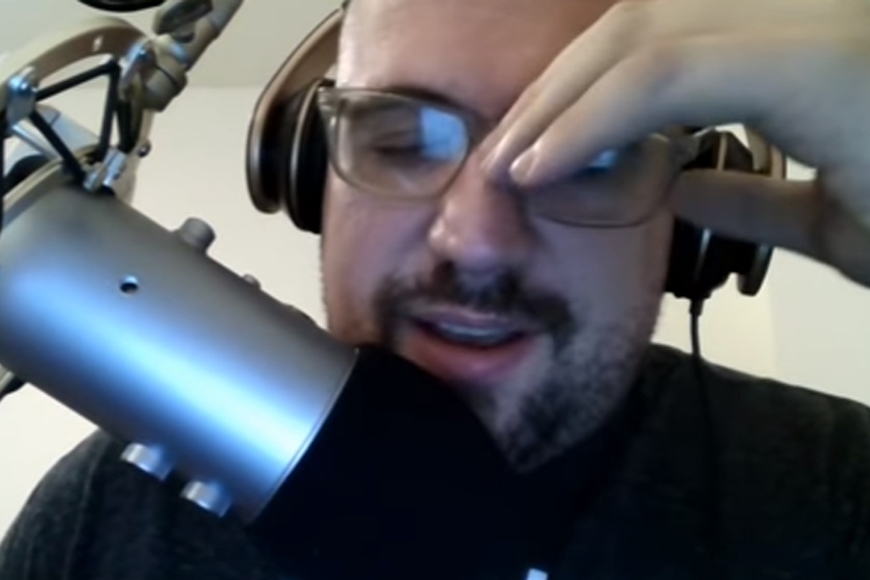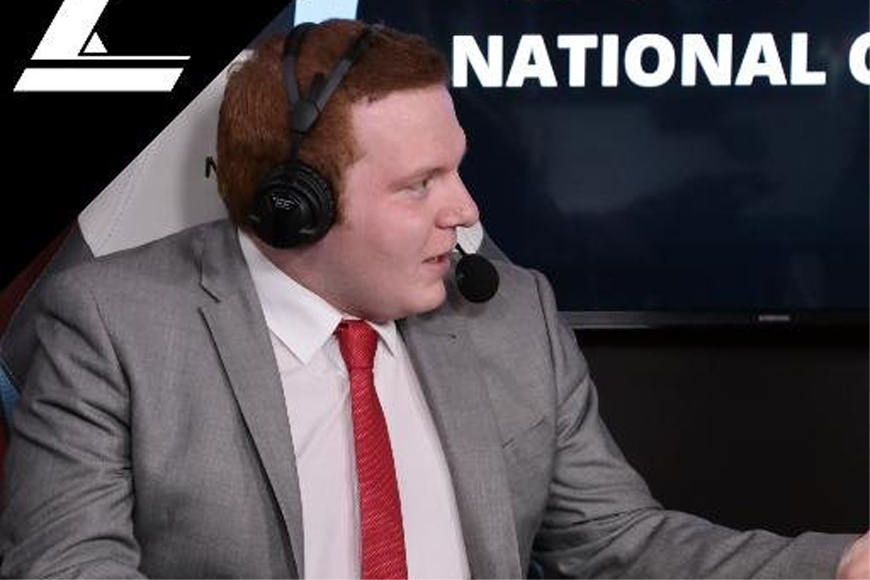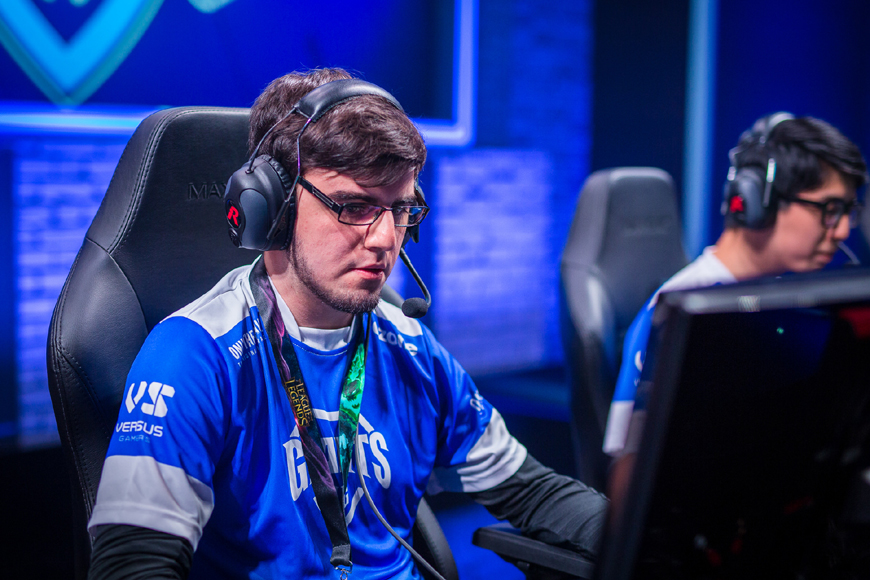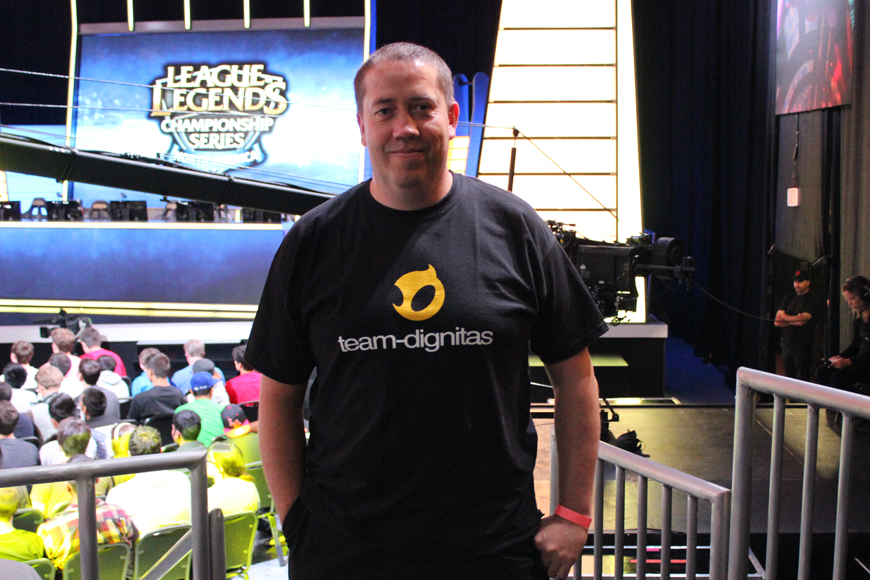After producing a video log attacking the UK esports scene a few days ago, prominent esports journalist Richard Lewis agreed to record a special video discussion show with ENUK.
Richard originally said that the UK esports scene should be ‘nuked from space’, and highlighted some of the recent controversy in the local CSGO scene, including cheating and drug taking.
In part one of our interview with Richard, we discuss what is currently wrong with UK esports and how he believes it has declined over the years, starting from around 2009/2010 following the economic crash.
In this article, we’ll break the problems down into sections.
You can also check out the full video below:
Please like and subscribe to Esports News UK if you enjoyed this video.
Check out part 2 of our Richard Lewis UK eSports interview here.
Broadcast pedigree & talent
Before we get into the negatives, Richard Lewis starts off by recognising the few positives in UK esports, when called out on his original view that the scene is full of ‘well-meaning idiots’ and ‘malicious scumbags’.
Richard admits “there are some good people in UK eSports”, namely Michael “Odee” O’Dell from Team Dignitas, and he also spoke about his own background in UK esports.
He also recognises British casters: “Our pedigree in terms of broadcast is unprecedented in the esports space, unfortunately the reality is they don’t really impact it that much. They are not influencers per se.”
Funding & why UK esports is ‘completely broken’
Richard says the industry is currently full of idiots who are their own worst enemy. He says these people have driven away investors from the local scene over the years.
“In 2006/2007 we had a thriving esports industry, we had big companies and people wanting to invest. Then the economic crash affected everything, and marketing budgets shrank, but we still had people to invest,” he commented.
“It will blow your mind to think we are in a worse place now in terms of infrastructure and investment, than we were back then. That’s why I think we need to nuke it from space and why I don’t take UK esports seriously in any way, shape or form.
“Nobody is promoting excellence anymore in the UK because it’s not profitable in the short term.”
“We’re left with a bunch of bumbling amateurs that honestly think they’re as good as the generation that came before. You’re not, you’ve got a long way to go before you ever will be.”
Players & lack of pros
While some UK talent has emerged in recent years, including Maxlore (pictured) and Alphari, who have gone from playing in the ESL UK LoL Premiership to the EU LCS, Richard says there still aren’t enough British players at that pro level.
“The minimal amount of top tier talent we produce is actually shameful,” he says.
“The days of us producing consistent esports stars are long behind us. For every KaSing there’s an Impaler, and that’s no disrespect to Impaler, but you go back to Supa Hot Crew or whatever terrible name they had at the time, and he was considered a sleeper hit. He’s just lost in the wilderness right now.”
Richard also compared the UK scene to other countries with lower populations, which have produced more talent on a tighter budget, like Denmark.
He spoke about a mindset problem in Britain too.
“We’re a don’t-give-a-sh*t country. Esports for a long time took so many half measures, we drove the real talent out and the businesses that should have done something differently are all gone now.”
“esports for a long time took so many half measures, we drove the real talent out and the businesses that should have done something differently are all gone now.”
Budgets being cut and the rise of ‘lethargy’
“There was a period after 2009 to 2010 when all of the marketing budgets had been cut back, and there was no money coming in,” Richard states. “Organisations were saying to the players: ‘You have got to put the effort in to get the salary.’
“The players were saying: ‘We aren’t going to put the effort in until we get a salary.’
“They entered into this ridiculous agreement where they’re effectively accepting failure. And nobody wins. And the situation we’re at now is that all that older talent has left the scene, we had some StarCraft players that could’ve done something. Multiple players. But they were told there was no food in the cupboard, so they left.
“So orgs brought in anyone they could and treated them like walking billboards. ‘I don’t care where you finish, just be there, and maybe the sponsors will give us more money.’
“That business model led to lethargy. Players realised they could get to any LAN event for free, as long as they were willing to be walking billboards and nothing more. When you accept that, why would you try? Why would you practice?”
“Odee kept going because he believed in it, and salaried players at a time when no one else would. It got the best talent and they were incentivised to go out and practice and win. That’s why Team Dignitas succeeded where everyone else fell back.”
How Team Dignitas broke the mould
“Team Dignitas came out of the global recession and expanded. They said they were going to shoulder the burden. And trust me, it got hairy,” Richard states.
“Odee almost sold that organisation – he’ll pretend he didn’t, but he did. He almost sold it for a pittance compared to what it’s worth now.”
Read more here on how Team Dignitas succeeded where other UK esports organisations fell away.
“If you’re a player and someone is trying to stop you moving organisations or anything like that based on a contract [without a salary], do not respect or adhere to that contract whatsoever because it is not enforceable. Orgs, if you want your players to be professional, treat them like professionals.”
Contracts without salaries are ‘unenforceable bullsh*t’
Richard Lewis has launched a scathing attack on the majority of UK eSports organisations over their contracts – and attitudes towards their players.
“UK organisations insist their players behave like pros, but they don’t pay a salary, they expect them to practice eight hours a day… some people even attempt to write this into their unenforceable bullsh*t contracts. They put all this expectation on them, but where are the rewards?” he asks.
“If you’re a pro player, you have to be paid to be professional. That’s the point. I’ve literally seen people try and enforce contracts that have no salaries. Good luck with that, by the way.
“I’ll tell you this. If you’re a player and someone is trying to stop you moving organisations or anything like that based on a contract, which I guarantee will be just a copy and paste from another contract, which was from yet another contract that was badly written… I bet it’s not even divided up into behavioural stuff and salary stuff properly.
“It’s bullsh*t and nonsense. Do not respect or adhere to that contract whatsoever, because they are not treating you with the respect that would make you want to respect that contract. Tear them up, wipe your arse with them or whatever you need to do. They are not enforceable.
“Orgs, if you want your players to be professional, treat them like professionals. I’ve heard of managers who are all like ‘woe is me, my players won’t listen to me’. Well do you pay them mate? No? Right, well there you go then.
Richard also says that UK orgs can’t take players to court or sue them – as they would get ‘laughed out of court’.
“A junior paralegal would look at these contracts and say ‘what is this?’
“The vast majority of UK orgs are copy and pasting contracts. They’re nonsense.”
Be sure to check out part 2 of our chat with Richard Lewis – how to make UK esports great again.
Your views
What are your thoughts on what’s wrong with UK esports? Leave a comment below or tweet us @eSports_News_UK
You can follow Richard Lewis on Twitter and subscribe to The Richard Lewis Show on YouTube here.

Dom is an award-winning writer and finalist of the Esports Journalist of the Year 2023 award. He has almost two decades of experience in journalism, and left Esports News UK in June 2025.
As a long-time gamer having first picked up the NES controller in the late ’80s, he has written for a range of publications including GamesTM, Nintendo Official Magazine, industry publication MCV and others. He also previously worked as head of content for the British Esports Federation.







